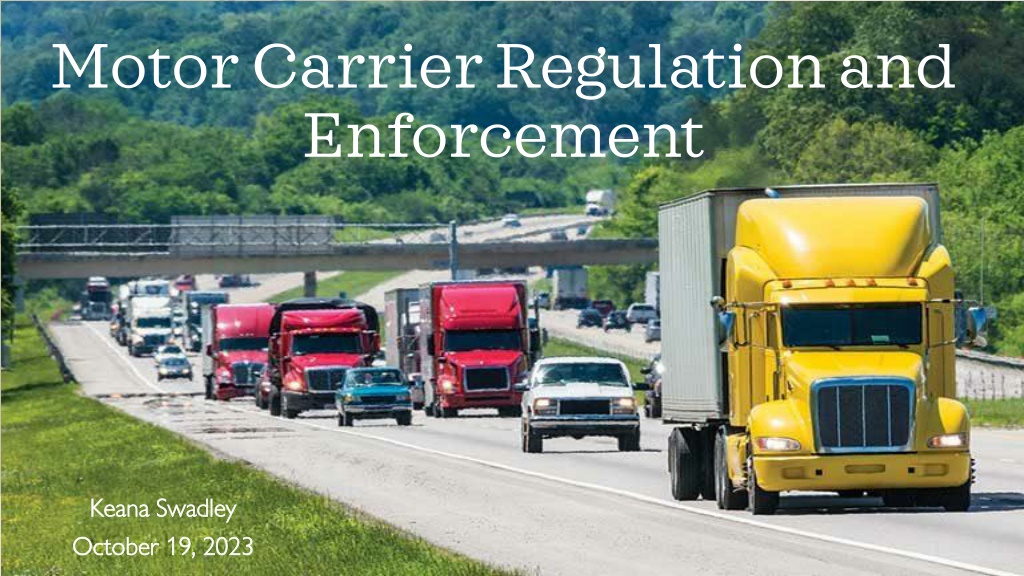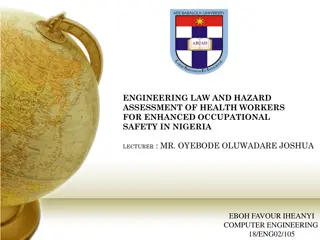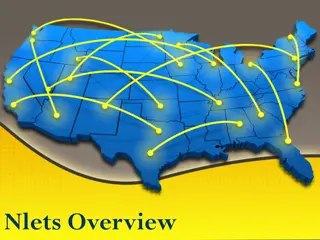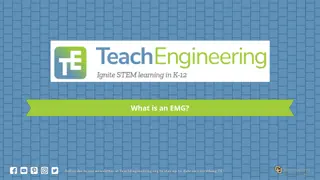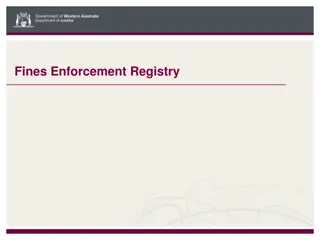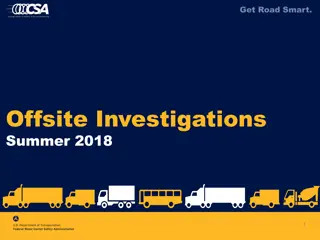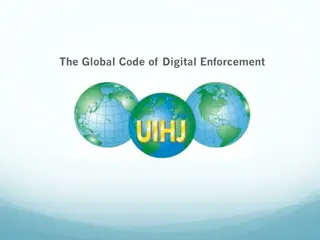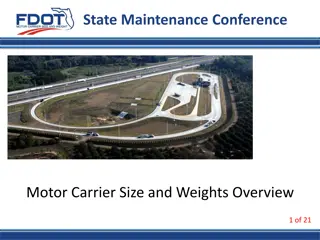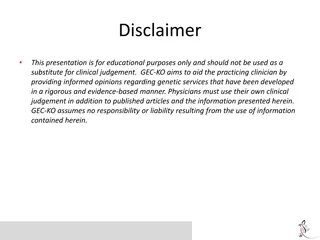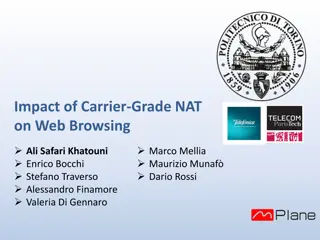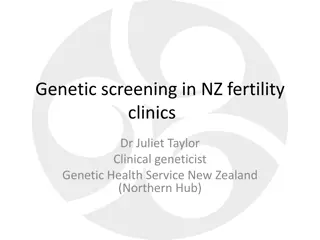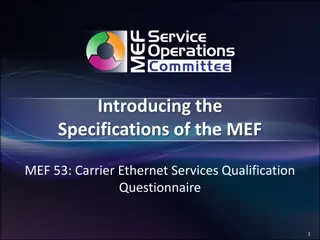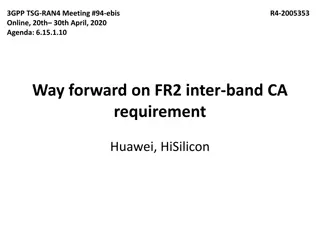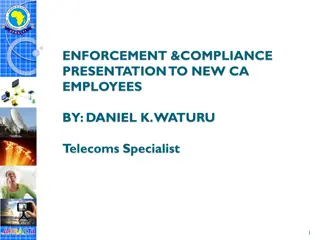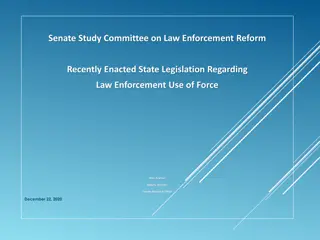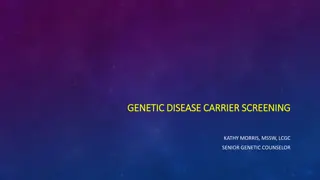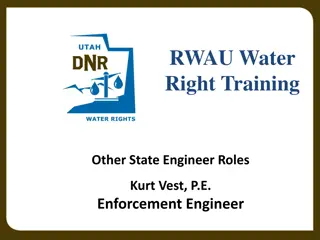Understanding Motor Carrier Regulation and Enforcement Across Different States
Explore how motor carrier enforcement is handled in various states such as Arkansas, Missouri, and Kansas, shedding light on the different entities responsible, processes involved, and key regulations like IFTA and IRP.
Download Presentation

Please find below an Image/Link to download the presentation.
The content on the website is provided AS IS for your information and personal use only. It may not be sold, licensed, or shared on other websites without obtaining consent from the author. Download presentation by click this link. If you encounter any issues during the download, it is possible that the publisher has removed the file from their server.
E N D
Presentation Transcript
Motor Carrier Regulation and Enforcement Keana Swadley Keana Swadley October 19, 2023 October 19, 2023
Topics Covered: 1) What entity handles motor carrier enforcement in each state? agenda 2) What entity handles adjudicating court cases involving enforcement citations? 3) What entity handles regulation of the IFTA and IRP? 4) What does the revenue flow of the Transportation Division of the Oklahoma Corporation Division look like?
Entities that handle primary enforcement in the state 3
Before We Dig In In most states, all but Arkansas, there is a dual system in place. The National Center for State Courts says this about motor carrier enforcement, Local, state and federal law enforcement all have jurisdiction to pull over a commercial driver. The problem is they will cite different laws, use different ticket formats and technology, and have different levels of familiarity with commercial driving regulations.
Arkansas On road motor carrier enforcement is handled by AHP. They can cite noncompliant motor carriers with a violation, which would be heard in a district court by a district court judge. Violations are appealable and would go through a circuit court. District courts are funded by local city/county budgets. IFTA and IRP is regulated by the Arkansas Department of Finance and Administration. 5
Missouri On road enforcement is handled by MSP - Commercial Vehicle Enforcement Division. They can cite noncompliant motor carriers with a citation, which would go through circuit courts and are heard by circuit and associate circuit judges. Most citations are criminal in nature and are appealable through a regular appeal process. The Office of State Courts Administrator houses these courts and is budgeted by the legislature. Additionally, Missouri has five other agencies that are involved in motor carrier regulation. Those agencies include Kansas City and St. Louis PD, St. Louis County PD, and two divisions within the Missouri DOT. IFTA and IRP are handled by the Missouri DOT. 6
Kansas On road enforcement is handled by the KHP Troop I. Troop I includes two divisions, the motor carrier inspectors (MCI) and the motor carrier safety assistance program (MCSAP) . MCIs are either a part of a mobile unit or at a fixed weigh station. MCSAP inspect commercial drivers and vehicles. Citations go through a district court in the county the citation was issued and heard by a magistrate judge. Citations are appealable and would be heard by a district judge. District courts are funded by the county and the judicial branch. The KCC Transportation Division handles licensing and inspection as well. IFA and IRP is handled by the Kansas Department of Revenue. 7
Colorado On road enforcement, including POE's, is handled by the CSP Motor Carrier Safety Section. The Public Utilities Commission - Transportation Safety and Compliance Unit handles all permits for intra- state commerce. They can assess a civil penalty assessment notice, which can be between $200 - $10,000. They have an internal hearing structure and staff administrative law judges (ALJ) that hear all transportation related cases. ALJ's make a recommendation to the commissioners who have the final say. Appeals go right to the commissioners. The courts are funded by the programs that use them. IFTA and IRP are handled by the Colorado Department of Revenue. 8
New Mexico On road enforcement is handled by NMSP Commercial Vehicle Enforcement Division. Most citations are criminal in nature and will go through the lower courts. The New Mexico Public Regulation Commission (PRC) handles permits and regulation. They can assess an administrative sanction if motor carriers are not compliant. Sanctions are appealable and will go directly to the state supreme court. The courts are funded by the Administrative Office of Courts, including the state Supreme Court, with a single funding structure. There is no legislative oversight. *The Transportation Division of the PRC is moving to the New Mexico DOT on July 1, 2024. Some of the structure of the commission will change including the appeals process, which will then go through the district courts. IFTA and IRP are handled by the New Mexico Motor Vehicle Division/Commercial Vehicle Bureau. 9
Texas On road enforcement is handled by the Texas DPS Commercial Vehicle Enforcement. For municipalities and county police forces to issue moto carrier citations they need to get legislative approval and each officer is required to attain a special certification. The Texas DMV handles permits and regulation. They can assess an administrative violation if motor carriers are not compliant. Violations can be appealed and will be heard by an administrative law judge. The State Office of Administrative Hearings houses the courts. IFTA is handled by the Texas Comptroller. IRP is handled by the Texas DMV. 10
Revenue Flow of the Transportation Division of OCC By statute 47 O.S. 1167 , of the revenues generated by the Trucking One-Stop Shop Act, the first $300,000 goes to DPS for their staffing of the entry weigh stations and the next $550,000 goes to OTC as is apportioned by OTC as provided in 47 O.S. 1104 . The remaining amount goes into their Trucking One- Stop Shop (TOSS) Fund. 11
TOSS Revenue FY 2019 - 2023 12
TOSS Spending FY 2019 - 2023 13
TOSS Spending End of Fiscal Year Balance 14
thank you Keana Swadley keana.swadley@okhouse.gov
